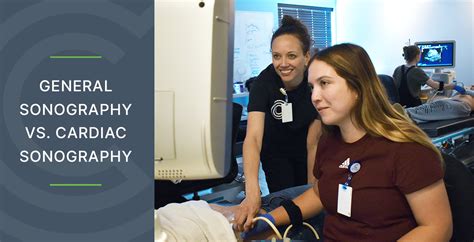Ultrasound technology and nursing are two distinct professions in the healthcare industry, each with its own set of responsibilities, educational requirements, and career paths. While both roles are essential in providing quality patient care, they have several key differences. In this article, we will explore the main differences between ultrasound techs and nurses, including their job descriptions, educational requirements, salary ranges, and growth opportunities.
Job Description and Responsibilities
Ultrasound Tech Job Description and Responsibilities
Ultrasound technicians, also known as diagnostic medical sonographers, play a crucial role in the medical field by using specialized equipment to create images of the body's internal structures. Their primary responsibilities include:
- Preparing patients for ultrasound procedures
- Operating ultrasound equipment to produce high-quality images
- Analyzing images to identify any abnormalities or diseases
- Maintaining patient records and reports
- Collaborating with physicians and other healthcare professionals to diagnose and treat patients
Nurse Job Description and Responsibilities
Nurses, on the other hand, are healthcare professionals responsible for providing hands-on care to patients. Their primary responsibilities include:
- Assessing patient conditions and developing care plans
- Administering medications and treatments
- Conducting various medical procedures, such as inserting catheters or taking blood samples
- Monitoring patient progress and reporting any changes to physicians
- Educating patients and their families on healthy habits and disease prevention
Educational Requirements
Ultrasound Tech Educational Requirements
To become an ultrasound technician, one typically needs to complete a post-secondary education program in diagnostic medical sonography. These programs are usually offered at the associate's or bachelor's degree level and take two to four years to complete. Additionally, ultrasound techs must obtain professional certification, such as the Registered Diagnostic Medical Sonographer (RDMS) credential, to demonstrate their expertise and competence in the field.
Nurse Educational Requirements
To become a nurse, one typically needs to complete a nursing program, which can be a diploma, associate's degree, or bachelor's degree in nursing. These programs usually take two to four years to complete and include both classroom and clinical training. Nurses must also obtain a nursing license by passing the National Council Licensure Examination (NCLEX-RN).

Salary Ranges
Ultrasound Tech Salary Ranges
According to the Bureau of Labor Statistics (BLS), the median annual salary for ultrasound technicians was $75,380 in May 2020. However, salaries can vary depending on factors such as location, experience, and industry. Here are some average salary ranges for ultrasound techs:
- Entry-level (0-2 years of experience): $55,000 - $65,000 per year
- Mid-level (2-5 years of experience): $65,000 - $80,000 per year
- Senior-level (5-10 years of experience): $80,000 - $100,000 per year
Nurse Salary Ranges
According to the BLS, the median annual salary for registered nurses was $76,840 in May 2020. However, salaries can vary depending on factors such as location, experience, and industry. Here are some average salary ranges for nurses:
- Entry-level (0-2 years of experience): $60,000 - $70,000 per year
- Mid-level (2-5 years of experience): $70,000 - $90,000 per year
- Senior-level (5-10 years of experience): $90,000 - $120,000 per year
Growth Opportunities
Ultrasound Tech Growth Opportunities
The demand for ultrasound technicians is expected to grow 14% from 2020 to 2030, faster than the average for all occupations. This growth is driven by an aging population and an increased need for diagnostic imaging services. Additionally, advancements in technology are expected to create new job opportunities in the field.
Nurse Growth Opportunities
The demand for nurses is expected to grow 9% from 2020 to 2030, faster than the average for all occupations. This growth is driven by an aging population and an increased need for healthcare services. Additionally, an emphasis on preventative care and community health is expected to create new job opportunities in the field.

Conclusion
In conclusion, while both ultrasound techs and nurses play critical roles in the healthcare industry, they have distinct job descriptions, educational requirements, salary ranges, and growth opportunities. Ultrasound techs are responsible for operating specialized equipment to create images of the body's internal structures, while nurses provide hands-on care to patients. By understanding these differences, individuals can make informed decisions about their career paths and pursue opportunities that align with their interests and skills.
Gallery of Ultrasound Tech and Nurse






What is the difference between an ultrasound tech and a nurse?
+Ultrasound techs are responsible for operating specialized equipment to create images of the body's internal structures, while nurses provide hands-on care to patients.
What are the educational requirements for ultrasound techs and nurses?
+Ultrasound techs typically need to complete a post-secondary education program in diagnostic medical sonography, while nurses typically need to complete a nursing program and obtain a nursing license.
What are the salary ranges for ultrasound techs and nurses?
+Ultrasound techs typically earn between $55,000 and $100,000 per year, while nurses typically earn between $60,000 and $120,000 per year.
